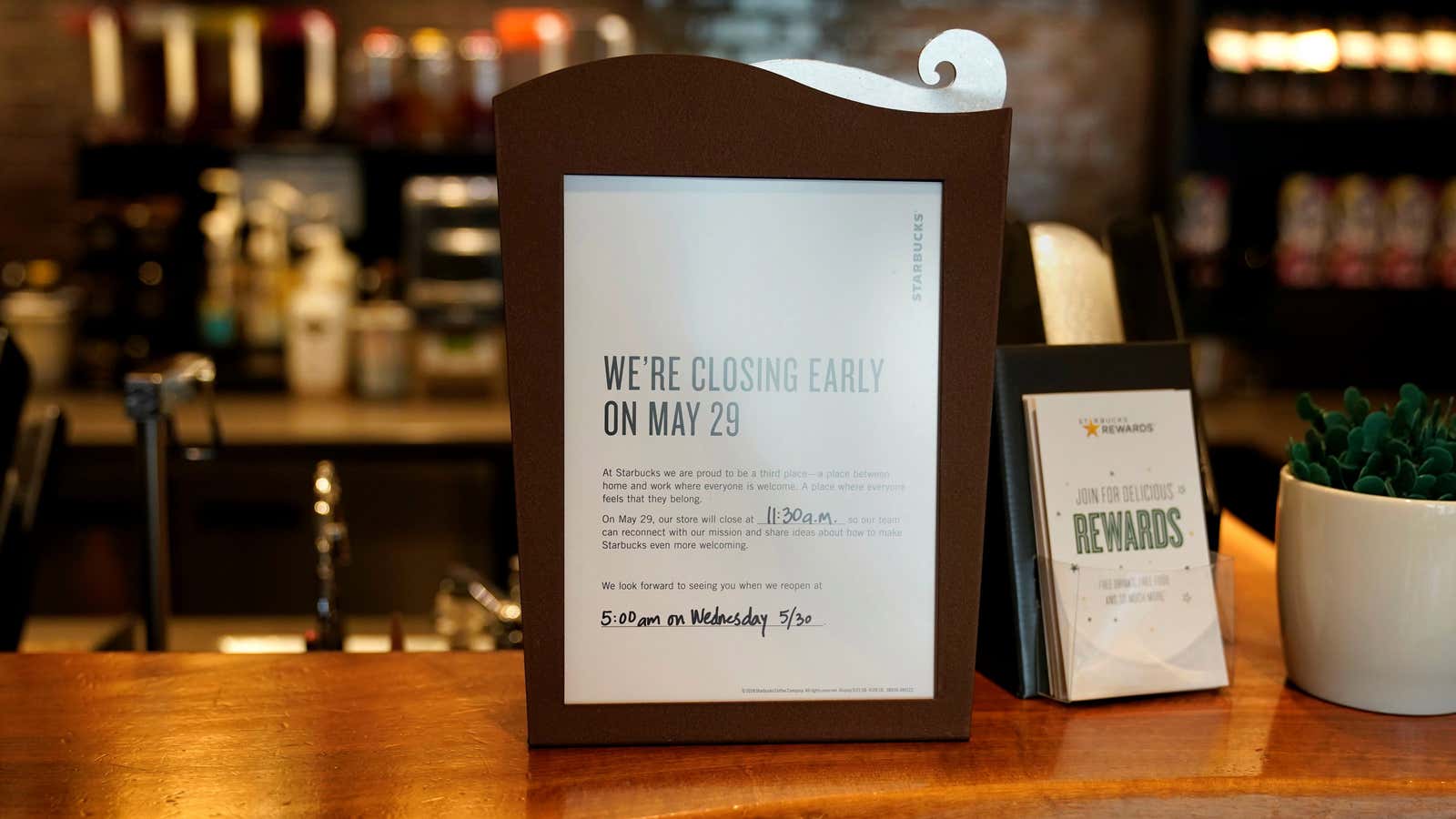Let’s start by saying Starbucks’ afternoon of racial-bias training is unlikely to work.
A few hours of training isn’t long enough to change behavior, particularly without regularly scheduled follow-up sessions. Many of the methods used to overcome implicit bias have been found ineffective. And mandatory training can backfire by breeding resentment.
Given that, Starbucks’ decision to forego an estimated $4.4 million in sales on the afternoon of May 29 could be read as more of a cynical marketing stunt than an actual attempt to fix a problem (after all, they company has received at least that much in free publicity). But that assessment ignores just how unusual it is for a company like Starbucks to own up to its mistakes. While other big companies like United Airlines or Wells Fargo have offered halting and insufficient apologies for their own recent failings, Starbucks is conducting a masterclass in corporate contrition.
When a Starbucks manager in Philadelphia called the police last month to arrest two black men for trespassing, the reaction ignited a storm of controversy and calls for a boycott. The company could have issued a statement that made clear it was the decision of one rogue employee. Instead, Starbucks accepted the responsibility as a company, acknowledged that its training and policies were inadequate, and then flew CEO Kevin Johnson and chairman Howard Schultz to Philadelphia to meet with the men and with civil-rights leaders in Philadelphia. The company then announced it was setting aside a day for training.
In contrast, when United employees called airport police to forcibly remove an overbooked passenger last April, airline CEO Oscar Munoz spent a week struggling to even formulate an apology. After first blaming the passenger—who suffered a concussion and broken nose—and defending the company’s procedures, he backtracked only in the face of public outrage, eventually calling the incident the product of a “system failure.”
At Wells Fargo, the misbehavior wasn’t the action of a handful of individuals, but a companywide ethical failure that led to the opening of millions of fake accounts on behalf of real customers. Yet the company’s initial reaction was deny its aggressive sales culture was to blame and absolve management from culpability, despite evidence that the problem at Wells Fargo had festered for years. Instead, the bank said the fault lay solely with the 5,300 frontline workers fired for their involvement in the scheme. Only now, almost two years and billions of dollars in fines later, is Wells Fargo running an ad campaign that acknowledges its missteps—just in time for another scandal to erupt.
Starbucks certainly has much to gain from its public act of remorse. Just as closing for an afternoon in 2008 to retrain baristas in coffee-making signaled a refocus on its product, the bias-training exercise demonstrates a commitment to improving relations with all customers. The company may even profit in the long run from the experience, as goodwill generated by the gesture cements good feelings about the brand.
But saying sorry is hard, no matter who you are, and particularly for multibillion-dollar companies that employ phalanxes of lawyers. No matter how flawed its training is likely to be, Starbucks is acknowledging that it screwed up, and that it’s willing to take very public taking action to get better. That’s a lesson for all companies.
